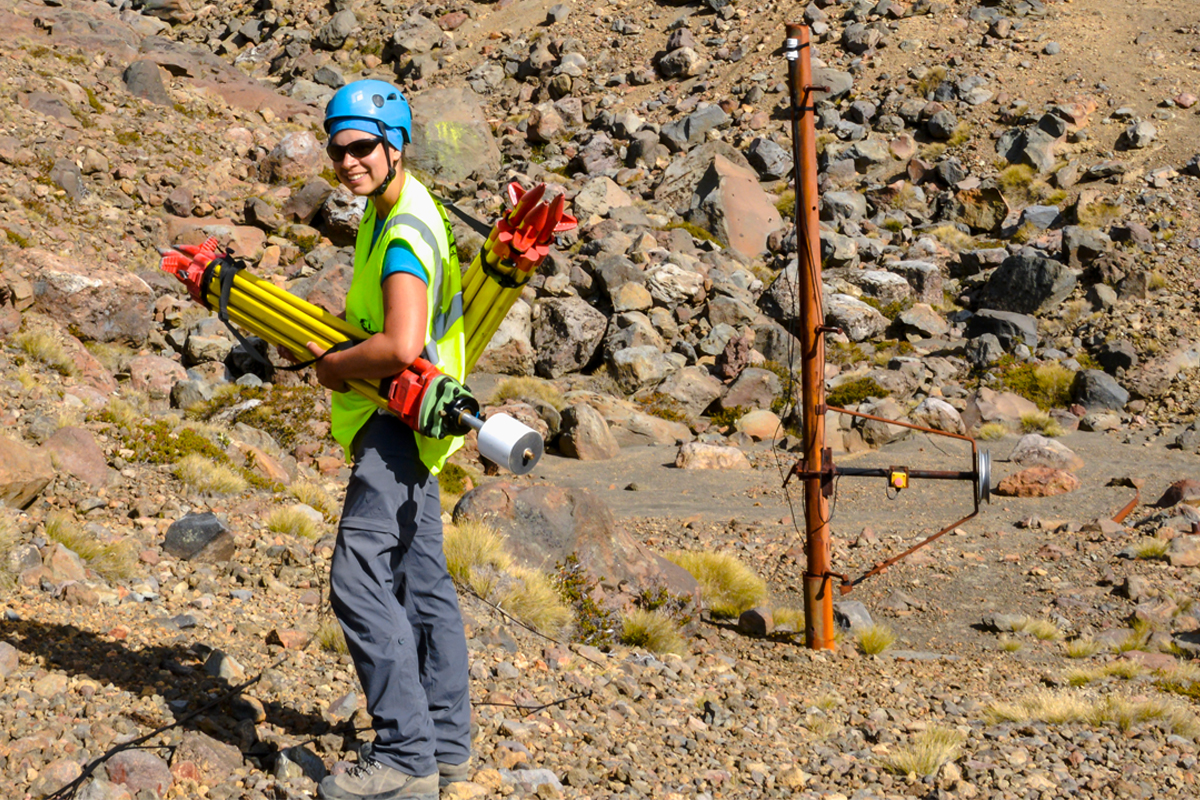All Categories
Featured
Table of Contents
What Is The Difference Between Geophysical Method And ... in Maida Vale Australia 2022

(PREM)., and the borders between layers of the mantle are consistent with stage transitions.

This makes plate tectonics possible. Schematic of Earth's magnetosphere. The solar wind Circulations from left to. If a world's magnetic field is strong enough, its interaction with the solar wind forms a magnetosphere. Early area probes mapped out the gross dimensions of the Earth's electromagnetic field, which extends about 10 Earth radii towards the Sun.
Inside the magnetosphere, there are fairly thick areas of solar wind particles called the Van Allen radiation belts. Geophysical measurements are generally at a specific time and location.
Geophysicist - Jobs And Skills Wa in Edgewater Aus 2021
A three-dimensional position is computed utilizing messages from four or more noticeable satellites and described the 1980 Geodetic Referral System. An option, optical astronomy, integrates astronomical collaborates and the regional gravity vector to get geodetic coordinates. This approach only provides the position in two coordinates and is harder to utilize than GPS.
Relative positions of 2 or more points can be identified utilizing very-long-baseline interferometry. Gravity measurements became part of geodesy since they were needed to related measurements at the surface area of the Earth to the recommendation coordinate system. Gravity measurements on land can be made using gravimeters deployed either on the surface or in helicopter flyovers.
Sea level can likewise be determined by satellites utilizing radar altimetry, contributing to a more precise geoid. In 2002, NASA launched the Gravity Recovery and Environment Experiment (GRACE), wherein 2 twin satellites map variations in Earth's gravity field by making measurements of the range in between the two satellites utilizing GPS and a microwave ranging system. Satellites in space have actually made it possible to collect data from not just the visible light region, but in other locations of the electromagnetic spectrum. The planets can be identified by their force fields: gravity and their magnetic fields, which are studied through geophysics and area physics. Determining the changes in velocity experienced by spacecraft as they orbit has allowed fine information of the gravity fields of the worlds to be mapped.
Career Guide: Geophysicist in Kiara Western Australia 2023

Considering that geophysics is worried with the shape of the Earth, and by extension the mapping of features around and in the planet, geophysical measurements consist of high accuracy GPS measurements. These measurements are processed to increase their precision through differential GPS processing. When the geophysical measurements have been processed and inverted, the interpreted outcomes are plotted using GIS.
Numerous geophysics companies have developed internal geophysics programs that pre-date Arc, GIS and Geo, Soft in order to satisfy the visualization requirements of a geophysical dataset. Exploration geophysics is applied geophysics that typically utilizes remote picking up platforms such as; satellites, airplane, ships, boats, rovers, drones, borehole noticing equipment, and seismic receivers.
Aeromagnetic information (aircraft collected magnetic data) collected using standard fixed-wing airplane platforms should be fixed for electro-magnetic eddy currents that are produced as the airplane moves through Earth's electromagnetic field. There are also corrections associated with changes in measured prospective field intensity as the Earth rotates, as the Earth orbits the Sun, and as the moon orbits the Earth.
Geophysical Surveying - Methods And Applications in Mount Pleasant Western Australia 2023
Signal processing involves the correction of time-series information for unwanted sound or errors introduced by the measurement platform, such as airplane vibrations in gravity information. It also involves the reduction of sources of noise, such as diurnal corrections in magnetic data., meteorology, and physics.
The magnetic compass existed in China back as far as the fourth century BC. It was utilized as much for feng shui when it comes to navigation on land. It was not up until excellent steel needles might be forged that compasses were used for navigation at sea; before that, they could not keep their magnetism enough time to be beneficial.
By taking a look at which of eight toads had the ball, one could identify the instructions of the earthquake. It was 1571 years before the very first style for a seismoscope was published in Europe, by Jean de la Hautefeuille. It was never built. Among the publications that marked the start of modern science was William Gilbert's (1600 ), a report of a series of meticulous experiments in magnetism.
Geophysicist - Job Role - Job Information in Dianella WA 2020
In 1687 Isaac Newton published his, which not just laid the structures for classical mechanics and gravitation Also discussed a variety of geophysical phenomena such as the tides and the precession of the equinox. The first seismometer, an instrument efficient in keeping a constant record of seismic activity, was built by James Forbes in 1844. Geochemistry, Geophysics, Geosystems. National Aeronautics and Space Administration. Obtained 13 November 2018.
Runcorn, S.K, (editor-in-chief), 1967, International dictionary of geophysics:. Pergamon, Oxford, 2 volumes, 1,728 pp., 730 fig Geophysics, 1970, Encyclopaedia Britannica, Vol. Intro to seismology (Second ed.).
Latest Posts
Where Can A Geophysicist Work Other Than The Oil Industry? in Ellenbrook Oz 2021
Geophysicist in Como Aus 2022
Geophysical Surveys Definition & Meaning In Stock ... in Karrinyup Aus 2022